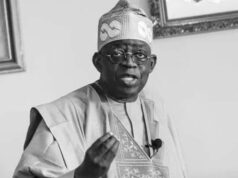“Forget the BRIC’s, the next decade is going to be about the MAVINs”
By Camillo Atampugre
THUR 30 SEPT, 2021-theGBJournal- While researching this piece, we came across a 2010 article on Business Insider which spoke about how the focus on Brazil, Russia, India and China (The BRIC’S) might be old news and, in fact, the next decade was going to be about the likes of Mexico, Australia, Vietnam, Indonesia, Nigeria and South Africa.
As a financial services organisation positioning itself to be the leading Pan-African banking group on the continent, predictions like this are fascinating to review. While hindsight is a perfect science, looking at the expectations around Nigeria and South Africa – and then reviewing how their economies actually evolved over the last decade – is interesting.
South Africa has walked an unusual path. At points in time, it has been grouped with the “BRICs” cluster but never really enjoyed the same size economy as its more illustrious peers and in many ways has failed to capitalise on its potential and failed to address structural economic issues, inequality and growing unemployment.
Nigeria on the other hand is a well of untapped potential. With a population of approximately 202 million people, data out of the World Bank suggests that it accounts for more than half of the West African population, is Africa’s largest oil exporter, and has the largest gas resources on the continent.
Before a recession hit in 2016, the Gross Domestic Product (GDP) was growing at a healthy 6.3% per annum and inflation was in the single digits. The COVID-19 shocks of 2020 saw the oil price battered and this hit the Nigerian economy particularly hard.
Oil accounts for 80% of Nigerian exports, a third of banking sector credit, and half of government revenue. When the oil price collapsed, the impact was immediate for Nigeria and its population.
Fast-forward to 2021 and the recovery of the oil price at over $70 per barrel, the investment case for Nigeria brightens significantly. While people often talk about the size of the youth population in Africa, this potential is often missed. According to the United Nations (UN) 43% of the Nigerian population is under the age of 14 and 62% are below the age of 25.
This youthful population is driving a technology revolution which is catching attention of some heavy-hitters across the globe. In the last 12 months, US heavyweight Stripe invested $200m acquiring Lagos-based start-up Paystack while Flutterwave, a Nigerian fintech player closed a funding round for $170million, valuing the company at over $1billion.
The world is sitting up and taking notice of the potential in the country.
These developments are impressive and point to an economy which is diversifying – by the reality is that if Nigeria is going to deliver economic growth over the next decade, much of its fortunes are going to be tied to two key factors:
- The oil and gas sector
- A stable electricity supply
As the world has emerged from the COVID-19 lockdowns, the economic recovery in developed markets has surprised to the upside and demand for oil has been buoyant which has gone some way to repairing government finances. Government has realised the strategic importance of the sector and has continued to invest in the image of the sector and driving a corporate governance agenda to attract foreign investors.
One of the key concerns for investors in Nigeria will be the growth rate relative to inflationary pressures. According to Absa research, real Gross Domestics Product (GDP) is expected to rise by 2.1% in 2021 and 2.6% in 2022. At the same time, inflation is expected to be 16.9% for 2021 and 12.4% in 2022. Households are under significant pressure with a rising cost of living and higher electricity costs being a very real concern.
The second part of the equation is the access to stable electricity supply, which is a prerequisite for attracting foreign investment. Nigeria has embarked on the “Nigeria Electrification Project” which focuses on connecting households and small to medium-sized entities to the grid. A 5-year project valued at $765million dollars launched in 2018 and has secured World Bank funding to the value of $365million.
To match its current population growth, Nigeria is required to create over 5 million jobs per year as entrants enter the job market. This is a pool of untapped potential but it requires a deepening and broadening of its economic activities. With COVID-19 constraining government finances, much of this is going to rest on progressive economic policy.
Data suggests that COVID-19 push nearly 7 million Nigerians into poverty and nearly 40% of the population are now living below the poverty line. The positive performance of the oil price coupled with some exciting developments in the fintech sector could be catalysts for further inbound foreign investment.
As an intermediary facilitating economic activity, Absa looks forward to walking a journey with businesses involved in the Nigeria growth story and engaging with entrepreneurs that are keen to tap into this potential.
Camillo Atampugre, is the director, Resources and Energy, Absa Securities United Kingdom
Twitter-@theGBJournal|Facebook-The Government and Business Journal|email: govandbusinessj@gmail.com










